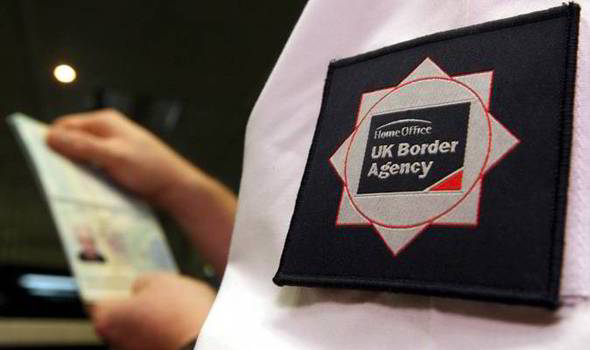Somaliland: King Rabi Detention Opens Unionism Pandora Box
By: Yusuf M Hasan HARGEISA (Somalilandsun) – "We demand the urgent and unconditional release of King Rabi Yusuf, or else" So read a statement released by traditional leaders after a meeting at a Hargeisa hotel where they had met to discuss and come up with strategies to effect the release of their jailed colleague King Rabi Yusuf Abdilahi now in police custody for almost a week. The arrest on 12th February and subsequent detention of King Rabi in the capital city immediately upon arrival from Mogadishu pertains to suspect interaction with the Somalia government thus a unionist, a treasonable offence in the country. The meeting whose participants were entirely traditional leaders from the King Rabi Eidagale clan asked the government to unconditional release the King whose arrest and detention they termed as abhorrence and an affront to their community. Excerpts of the Elders Statement to the government read Quote - "King Rabi is a respectable leader and his detention without trial is an affront to his leadership mandate in addition to being a ploy to assassinate his character and good standing within the community" "While we acknowledge and respect laws of the country we urged the security officials holding King Rabi to arraign him in court if he they have sufficient proof of his crimes or release him immediately" "Nonetheless we hereby inform of our abhorrence for the continued detention without trial of the respected traditional leader which is proof that his arrest was of malicious intent" "We therefore inform the government that unless the King's arraignment in court or release is not expedited we shall be forced to pursue other avenues that might be detrimental to existing cooperation" –Unquote Though King Rabi's mission in Mogadishu are not clear he is known to have gone there after conclusion of the Somalia constitution making that attracted a number of prominent personalities mostly traditional leaders. In pursuit of fulfilling constitutional dictates that criminalize any association with Somalia authorities, the government in Hargeisa has repeatedly warned that those who are enticed (financially/Morally) will be arrested and charged with treason upon setting foot in Somaliland. While this tenet of treating the Somalilanders termed unionists thus owing allegiance to the Mogadishu government has withstood the time tide of two decades the lenient sentence imposed on Somalia MP Jama Ahmed Mahmud is seen as a salient approval of association with Somalia by the Government in Hargeisa. The Mogadishu legislator was arrested on 5th Feb in the western Gabile town where he had been for a fortnight and subsequently transferred to Hargeisa for arraignment in Court. According to the Gabile regional police Chief Captain Suleiman Duale 'Dega'ade', MP Jama was arrested because he original hails from Gabile thus a traitor to the Nation for having joined the Unionists in South Somalia, an act that is contrary to the laws of Somaliland. On 23rd February the Maroodi-jeeh (Hargeisa) regional court fined the MP1, 000,000 SL Sh ($150) plus immediate deportation to Mogadishu upon payment of the fine. The legislator having paid the lenient fine was subsequently deported two days ago. "Due to the severity under which the unionist legislator was charged with and the subsequent sentence of a cheap fine and deportation, the hitherto treasonable crime of working for the Somalia government seems to have been discarded" quipped analyst Yumoha Pasha On the other hand the court's lenient treatment of the unionist MP son of Somaliland is very contrary to the vehement castigation meted on Ms. Fozia Yusuf Haji Aden a few months ago when she was appointed to her current posts of Somalia deputy premier and Foreign minister. Hon Fozia Yusuf Haji Aden who is currently the Somalia Deputy Premier and minister of Foreign Affairs who is a prominent daughter of Somaliland was upon her appointment in Mogadishu, accused of being a traitor and threatened with arrest and stiff sentence if ever she steps on Somaliland soil. At the height of debate on the Fozia Mogadishu appointments to high posts the chairperson of the Guurti, the upper chamber of parliament, Elder Suleiman Mahmud Aden said that the Fozia's ascension to those offices was treason, a crime against the republic of Somaliland and thus to be considered, Fozia a traitor. Though the leader of the house of elders pledged to see that the law is upheld thus her prosecution on treason and subsequent stiff sentence, proceeding events as per the leniency meted on Somalia MP Jama Ahmed Mahmud places the elder between two walls as pertains to his fulfillment of his pledge on Fozia if ever she is arrested. So what will happen if and when the Mogadishu based Deputy Premier decides to visit relatives in and facelift her sprawling mansion in Hargeisa? In the unionism Pandora box there is the detention without trial of King Rabi, the $150 and deportation lenient sentence for the now not treasonable association with Somalia authorities. |


 Renting billboard space in prime locations may have been the old way to advertise, but these days, Japan is scouting out new space to rent for their advertising campaigns. According to the
Renting billboard space in prime locations may have been the old way to advertise, but these days, Japan is scouting out new space to rent for their advertising campaigns. According to the 



 A UK Border Agency source said the agency was "actively seeking to get rid of him"
A UK Border Agency source said the agency was "actively seeking to get rid of him" The Oswestry and Border Counties Advertiser follows its
The Oswestry and Border Counties Advertiser follows its 
 The Berwick Advertiser
The Berwick Advertiser